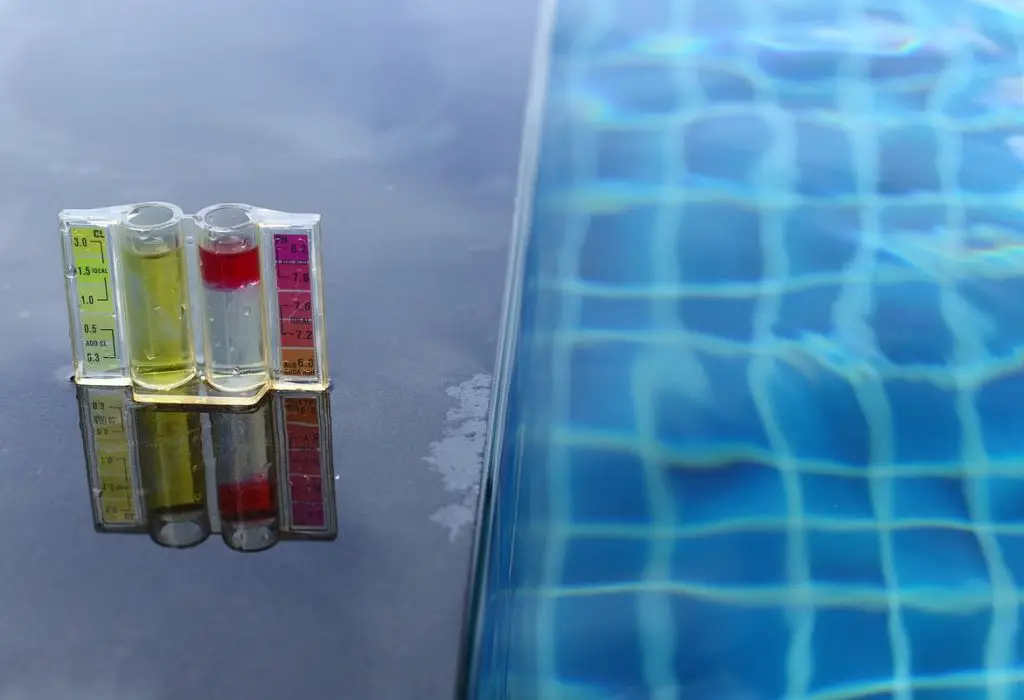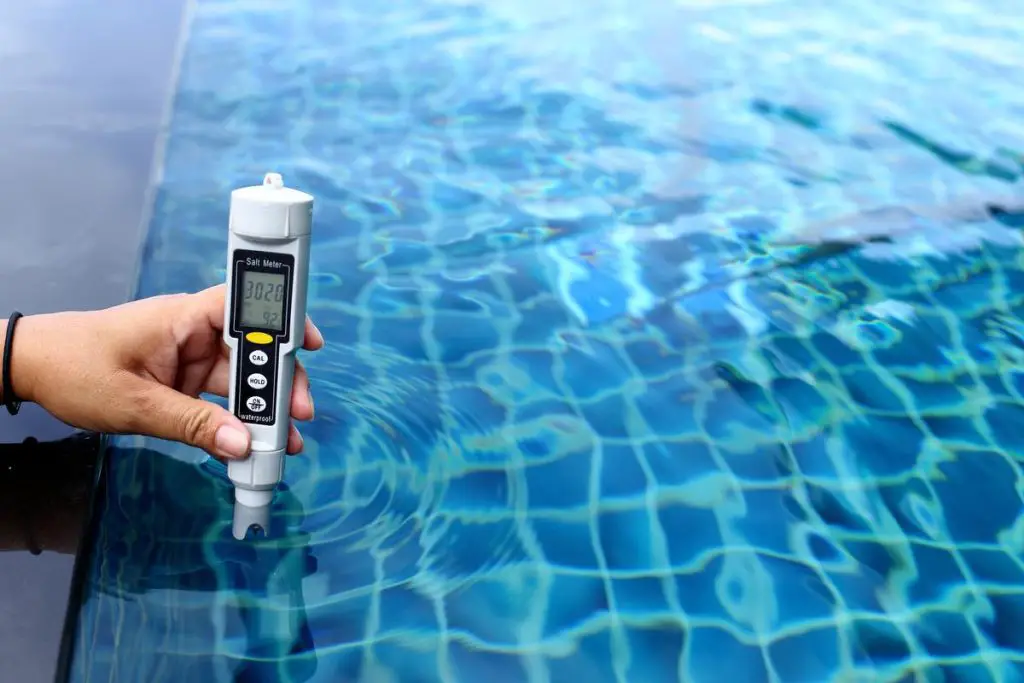A pool can be the centerpiece of your summer entertainment, but they go dormant in winter when no one wants to plunge into the frigid water. Inspections and thorough maintenance are always recommended for pools when you use them, but few people know that you might need to get a pool inspection during winter.
You can get a pool Inspection in the winter, but maintenance requirements need attention before the cold weather arrives. Your geographical location depends on the steps necessary to winterize a pool and the level of care you need to give your pool throughout the winter months.
Let’s discover together what an inspection for a pool entails, what a winter inspection looks like, how to winterize a pool in cold climates, and who can perform these required maintenance checks to keep your inground or above-ground pool lasting through the years.

The Components of a Pool Inspection
Before discussing winter inspection and its execution, let’s see what a typical pool inspection entails.
This review will be slightly different depending on where you reside and the type of pool you own. Similar to a mid-winter inspection, steps to scrutinize a pool dive a bit deeper.
Pool checklists may vary depending on location and independent company services, but here are the essential components:
- Pressure-testing all lines to ensure there are no leaks.
- Decking inspection to check for settling, drainage, cracks, texture for slip resistance, and safety surrounding the pool.
- Diving boards and accessories, like slides, are observed to ensure they are structurally sound and up to code.
- Checking railings, steps, and ladders are structurally sound and up to code.
- Ensuring pumps are accurately working and filters are clean and in great shape.
- Testing chemical balance and sanitization.
- Ensuring drains and filters are clear and functional.
- Ensuring electrical wiring is up to code, safely, and effectively functioning.
- Checking that time clocks, pumps, heaters, and lights are wired and working correctly.
- Looking for the presence of environmental hazards.
- Testing for the proper function and noise of air pumps and other fundamental features.
- Checking vinyl lining for rips and patching them as needed.
Pool Inspections for Winter
A great way to thoroughly check your pool is in autumn when you are winterizing.
Preparing a pool for the cold winter months requires testing many features. As you deep clean your pool, be sure to check for:
- Moisture in light fixtures
- Faulty or old light bulbs.
- Cracks or broken tiles in the liner and deck.
- Malfunctions in any pumps.
- Heater function.
- Leaks or breaks in your lines.
- Ripped or torn filters.
- Damage to the pool cover or air pillow.
After going through your components and making necessary repairs, continue preparing your pool for the winter.
It is crucial to deep clean and entirely remove any organic material that may be in the pool. Remove all accessories like ladders, thermometers, pool cleaners, and skimmer nets.
If you would like further instruction on adequately winterizing your pool, you can call a pool inspector in your area, as geographical location impacts the process.
How Your Location Affects Winter Pool Inspections
Correct winterization of your pool will give you peace of mind during winter and make it easier if you get an inspection to receive good news.
For the lucky pool owners in warm winter climates (above 40°F/4.44°C at night), you may not need to winterize and shut down your pool if you have an appropriate water heater.
Still, pests are a concern during winter, no matter where you live.
In the winter, it is a natural response for vermin to move indoors. You may see these types of wildlife attracted to electrical wires. These pests can wreak havoc on your pump house and other pool electrical needs.
Noticing early signs of rodents around electrical equipment will save equipment and damage repairs.
Every area has different environmental elements that can influence pool care. So, be sure to check your local pool care maintenance requirements and know about local pests that are potential threats.
If you’re interested in learning more, I recommend my article on the reasons that pools may fail inspections. You’ll learn what to look for.
What Does a Pool Inspector Look for in Winter?
Honestly, inspectors can only do a limited visual inspection during winter. Many people find it prudent for a professional to check the pool for a sense of security. The good news for those looking to save a few dollars during winter: you can easily do it yourself!
Winter pool checks are pretty straightforward. Some things you should do include, but are not limited to:
- Checking components for damage.
- Examining the liner, plaster, or concrete for cracks.
- Examining decorative tile and the deck for lack of drainage or damage.
- Analyzing electrical features.
- Checking that the breakers and time clocks are off.
- Testing that chemical balance and sanitization are at safe levels.
Wondering how much time you should spend on a pool inspection? I’ve covered the factors that can prolong a pool inspection in a complete guide. Read it to discover the answer. [How Long Does a Pool Inspection Typically Take?]
Why and When To Hire a Professional For Winter Pool Inspection
Hiring a company is up to your comfort with checking electrical components and knowing what your pool looks and sounds like when it is running effectively. Certain circumstances may require a professional, but if you know how to maintain and check your pool correctly, you can always do it yourself.
One of the problems with winter inspections is the simplicity. Some of the checklists above can be performed by yourself unless you are not available or comfortable doing so. It is prudent to keep a close eye on your pool for longevity.
Local code violations can become costly; a yearly professional inspection will alleviate these potential problems.
If you buy a home with a pool during the winter, I highly recommend springing for a professional pool inspection. A pool can bring the value of a house up unless it has become a financial money pit from neglected maintenance. Check with your realtor to avoid the responsibility of previous owner pool maintenance issues.
Many companies nationwide will do pool inspections any time of the year. Make sure to call your local inspectors and ask them questions about what you are trying to achieve with your pool and if they perform mid-winter inspections. Some home inspection companies will either do the assessment themselves or can refer you to a reliable pool inspector in your area.

Conclusion
You can get a pool inspection in the winter, and you should always inspect your pool before you cover it for the winter.
Damage prevention is a considerable part of keeping a pool functional for years to come, and you can’t inspect your pool too much. Checking over your pool’s systems and levels can ensure that it stays in its best shape possible, even if it’s sitting dormant over winter.
So, regularly clean and maintain your pool, and have a professional inspect the pool at least once a year for safety and monetary relief.
